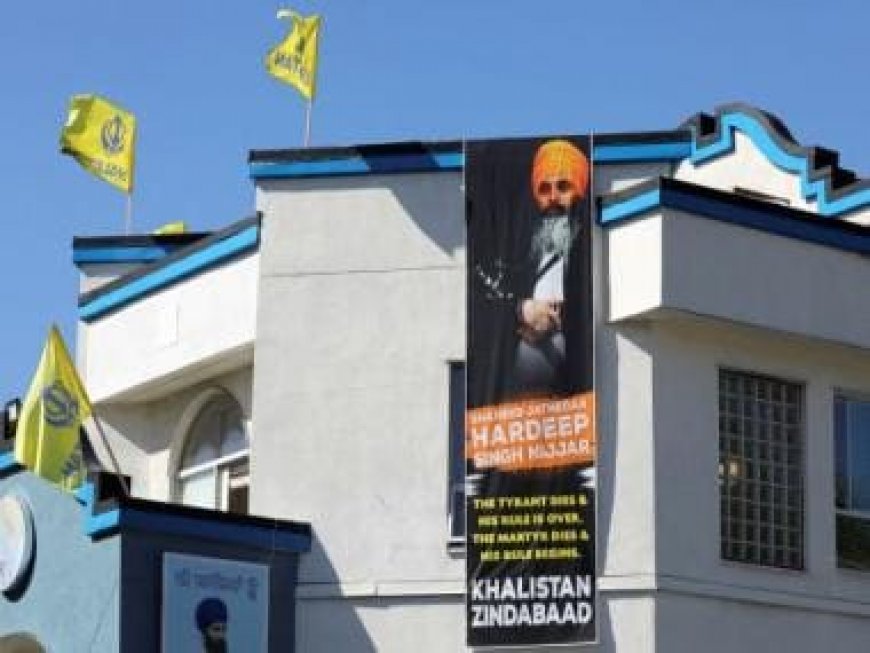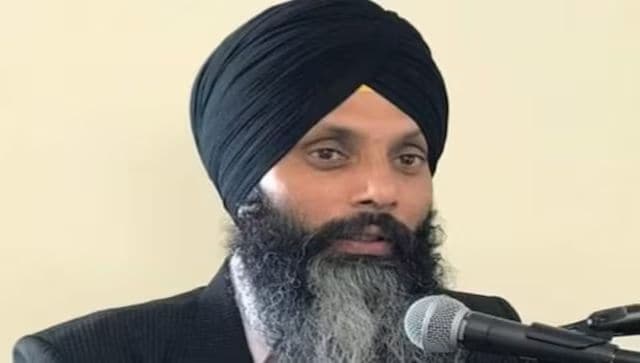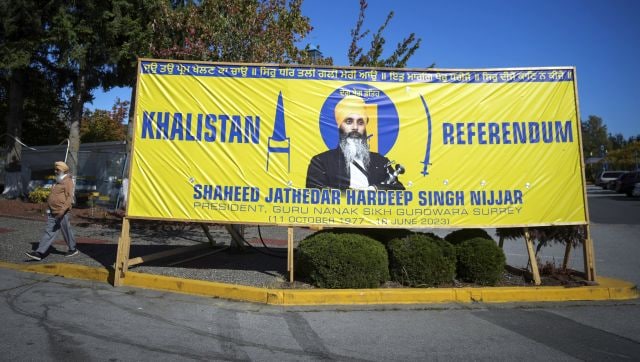Who was Hardeep Singh Nijjar, the Khalistani terrorist at centre of India-Canada standoff?
Who was Hardeep Singh Nijjar, the Khalistani terrorist at centre of India-Canada standoff?

From bad to worse. That’s one way of describing India-Canada ties. Relations between the two countries nosedived on Tuesday (19 September) when Canadian prime minister Justin Trudeau expelled a top Indian diplomat, claiming there was credible information linking Indian agents to the murder of a Sikh separatist – Hardeep Singh Nijjar.
Speaking in the House of Commons (Canada’s lower house of parliament), Trudeau said on Monday, “Canadian security agencies have been actively pursuing credible allegations of a potential link between agents of the Government of India and the killing of a Canadian citizen, Hardeep Singh Nijjar.”
BREAKING: Trudeau’s statement regarding allegations of India’s involvement in killing of Sikh leader in Canada pic.twitter.com/ECmwQqnkNY
— The Spectator Index (@spectatorindex) September 18, 2023
He told the lawmakers that any involvement of a foreign government in killing a Canadian citizen on Canadian soil is an unacceptable violation of our sovereignty. It is contrary to the fundamental rules by which free, open and democratic societies conduct themselves, he said.
India, on the other hand, has described Trudeau’s allegations as “absurd” and “motivated”. The Ministry of External Affairs reacting to the expulsion of their diplomat said, “Allegations of the Government of India’s involvement in any act of violence in Canada are absurd and motivated.
“Similar allegations were made by the Canadian prime minister to our Prime Minister, and were completely rejected,” it said, adding, “We are a democratic polity with a strong commitment to the rule of law.”
But who exactly is this Hardeep Singh Nijjar, who is at centre of standoff between India and Canada?
Life and times of Hardeep Singh Nijjar
On 18 June, Canadian national Hardeep Singh Nijjar was shot dead outside a Sikh temple in Surrey, British Columbia. The Royal Canadian Mounted Police’s Integrated Homicide Investigation Team said that two heavy-set suspects shot Nijjar, before fleeing to a getaway vehicle driven by a third suspect.
While Canada has described Nijjar as a Sikh activist, the 46-year-old was a wanted man in India.
A native of Bhar Singh Pura village in Jalandhar, he worked as a plumber before being elected as the head of the Guru Nanak Sikh Gurudwara. In 1997, Nijjar came to Canada, claiming he had been beaten and tortured by Indian police. In 1998, his refugee claim was denied. But he later acquired Canadian citizenship by marrying a Canadian woman, who sponsored him to immigrate.

Nijjar led the Khalistan Tiger Force (KTF), a Canada-based pro-Khalistan outfit, which organised training camps for extremists in British Columbia.
According to the Indian government, he was actively involved in the operations of KTF and financed its members. He was linked to Sikhs for Justice, a pro-Khalistan group banned in India, and even went to Australia for Khalistan referendum voting demanding a separate Punjab. He played a key role in organising a similar vote in Brampton, a city in Canada.
Jatinder Singh Grewal, an organiser with Sikhs for Justice, told The National Post that Nijjar was a pillar in their community. “Hardeep Singh Nijjar was a role model, prominent personality in the community and for the advocacy of a separate Sikh state of Khalistan through a democratic process of referendum.”
Nijjar featured on the Indian government’s recent list that named 40 other designated terrorists and was wanted for his involvement in acts of violence. The Centre had directed Canadian authorities to take action against him.
When Canadian prime minister Justin Trudeau visited India in February 2018, he was handed a list of criminals by then-Punjab chief minister Captain Amarinder Singh, which included Nijjar’s name. The terrorist was arrested by Canadian authorities in April 2018 but was released without any charges being filed.

The many crimes of Hardeep Singh Nijjar
Nijjar had a history of crimes and has been accused of reviving Babbar Khalsa International (BKI), one of the oldest Khalistani terror groups based in Canada, by providing financial support to the outfit.
In 2016, Indian authorities alleged he was linked to a 2007 bombing in Punjab. He had vehemently denied the charge then, with Vancouver Sun quoting him then as saying, “This is garbage — all the allegations. I am living here 20 years, right? Look at my record. There is nothing. I am a hard worker. I own my own business in the plumbing.”
The Punjab Police had also issued a lookout for the terrorist before he died. He was booked for his alleged involvement in an explosion near Satya Narayan temple in Patiala in the year 2010 and for plotting to kill religious leaders in the state. He was wanted in several terror-related cases in the state.
Nijjar had ties with Pakistan and visited the country in 2013 to meet Jagtar Singh Tara, who assassinated former Punjab chief minister Beant Singh, and officials of the Inter-Services Intelligence (ISI). Tara was arrested in Thailand in 2015 and was awarded life imprisonment by a district court in Chandigarh, India.
In 2018, the National Investigation Agency (NIA) registered a case against Nijjar, where he was accused of sedition, promoting enmity between different religious groups, and criminal conspiracy, among others. According to the NIA, he posted objectionable content on social media to spread “insurrectionary imputations” through hateful speeches, reports The Indian Express.
In a note to the probe agency back then, the Ministry of Home Affairs had said that the KTF leader had planned to carry out a major terrorist attack in India. “He has been engaged in several activities that are prejudicial to the sovereignty and integrity of India, such as sourcing finance to procure arms and ammunition and training Sikh youth for carrying out terrorist activities in India,” the ministry had said.
He was named in an NIA chargesheet in connection to killing a Hindu priest in Jalandhar in January 2021. In 2022, the Punjab Police sought Nijjar’s extradition in cases related to reviving terrorism in the state. Thes NIA also declared a reward of Rs 10 lakh on him.
In Canada, he pushed the Khalistani agenda, even raising an 80-feet high Khalistani flag towering over the Indian tricolour at the Indian embassy in Vancouver.
Nijjar was also accused of killing Ripudaman Singh Malik, one of the accused in the 1985 Air India bombing case, who was later acquitted. The two were killed similarly – both shot dead in Surrey.
The murder of Hardeep Singh Nijjar
Not too much is known of Nijjar’s death, which took place on 18 June in Surrey.
Gurpatwant Singh Pannun, the chief of the banned Sikhs for Justice group, and reportedly his lawyer, was quoted as saying that he had warned Nijjar of threats to his life.
Following his death, the Integrated Homicide Investigation Team called it ‘targeted’, but didn’t comment on the motives of the perpetrators.
Investigators at the time had described the shooters as two heavy-set masked assailants who fled the parking lot on foot, to a getaway car parked in the area of 121 Street and 68 Avenue. Police believe the vehicle — a silver 2008 Toyota Camry — had been waiting for at least an hour and had a driver, the third suspect in the slaying.
To date, no one has been arrested.
With inputs from agencies
What's Your Reaction?



























































